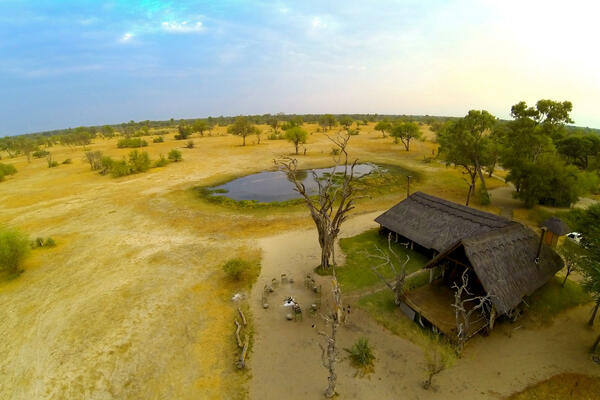
Hwange National Park in Zimbabwe has been experiencing severe drought conditions, with the 2023-24 season seeing drastically reduced rainfall.
Typically, the park receives about 1200 mm (47 inches) of rain during the rainy season from November to April. However Hwange Main Camp, located near the entrance and offering park-run accommodation and facilities for visitors, recorded only 360mm (14 inches) this past season.
The second half of the season, crucial for the growth and seeding of vegetation, was almost entirely dry.
This drought has been exacerbated by the El Nino effect, bringing high temperatures and low rainfall, leading to the driest February in over a century according to the United States Agency for International Development’s Famine Early Warning Systems Network.
Importance of Pump Runs
In response to these challenging conditions, maintaining water sources for wildlife has become a critical task.
Pump runs, essential for supplying water to boreholes throughout the park, are vital in sustaining the wildlife dependent on these waterholes. Conservation organisations such as The Friends of Hwange, along with camp/lodge operators maintain many of the waterholes.
Imvelo Safari Lodges operates hybrid pumps that switch to diesel when solar energy is insufficient, ensuring continuous water supply, especially at night when elephants are most active. They manage 25 pumps, with full-time staff stationed around the clock to keep them operational. Imvelo operates four camps in private concessions adjacent to Hwange National Park: Camelthorn, Bomani, Nehimba, and Jozibanini.
Imvelo offers guests a behind the scenes conservation experience, combining traditional wildlife viewing with active participation in conservation work. Guests can help deliver diesel, parts, and supplies to the pumps, gaining insight into the vital work of keeping Hwange’s waterholes running. These safaris are based between Camelthorn and Jozibanini camps, offering incredible wildlife viewing opportunities while contributing to essential conservation efforts.
Elephants need around 100 to 200 litres (26 to 53 gallons) per day on average, although this increases in hot weather. Hwange National Park is home to approximately 50,000 elephants. This makes it one of the largest elephant populations in Africa. The park's extensive efforts in maintaining water supplies, such as pump runs to fill waterholes, are critical for sustaining these large herds, especially during severe drought conditions.
Images: Bomani Tented Camp, Imvelo Safaris




